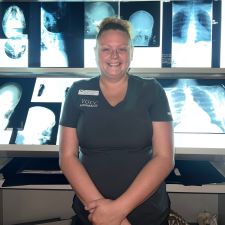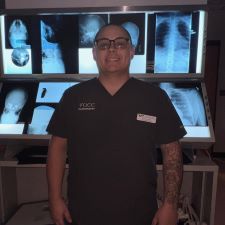Associate In Arts
Program Description
The Associate in Arts (AA) and Associate in Science (AS) programs provide students with the first two years of a four-year baccalaureate degree. The AA offers an excellent foundation for degrees in communication, education, humanities, fine arts, languages, and social and behavioral sciences. The AS offers an excellent foundation for degrees in engineering, computer science, mathematics, and the natural sciences. If you are an aspiring business major or other major not identified above, contact the university with the program that interests you to determine which degree is most suitable. Courses are approved for transfer through the Comprehensive Articulation Agreement (CAA). The CAA enables North Carolina community college graduates of two-year Associate in Arts and Associate in Science programs who are admitted to constituent institutions of The University of North Carolina to transfer with junior status. Community college graduates must obtain a “C” or better in each course and an overall GPA of at least 2.0 on a 4.0 scale in order to transfer with a junior status. Courses may also transfer through bilateral agreements between institutions. The core courses for the AA are selected from the following categories:
Associate in Arts Core
6 credits English
9 credits Humanities/Fine Arts
9 credits Social/Behavioral Sciences
3 or 4 credits Mathematics
4 credits Natural Sciences
The degree also requires students to earn at least a C in ACA 122 (College Transfer Success) and to take general education courses or pre-major elective courses to total sixty (60) credits. Applicants to the AA or AS program are required to do pre-admission testing. Students with a combined writing and reading score of at least 1000 and a math score of at least 500 on the Scholastic Aptitude Test (SAT) are exempt from further testing. Students may also exempt placement testing with a combined English and reading score of a least 40 and a math score of at least 22 on the American College Testing (ACT). Others must take a placement test to determine their reading, writing, and mathematics proficiency. Students must place into ENG 111 (Writing and Inquiry) for admission into either program. Prospective students who need remediation in one or more areas will be placed in appropriate developmental studies courses designed to give them the best opportunity for success in subsequent college courses. Developmental courses do not count toward the overall degree credit requirements.[table]
| Program Name | Credit Hours | Program Type |
|---|---|---|
| Associate in Arts A10100 (Course Sequence) | 60-61 |
Program Details
Discover the specifics of our programs, including required courses, course sequence, pathways, and learning outcomes.
Vance-Granville Community College has joined the “Scholar of Global Distinction” program, a partnership between community colleges and UNC World View, a public service program of the University of North Carolina at Chapel Hill.
As a “Scholar of Global Distinction” college, VGCC will allow students the opportunity to earn a “Graduated with Global Distinction” notation on their transcripts by:
- Completing at least 15 credit hours of globally intensive courses;
- Participating in eight international activities and dialogues;
- Gaining 30 hours of global experience in a study abroad or domestic intercultural experience; and
- Completing a capstone presentation related to their two-year global learning experience.
Examples of globally intensive courses are foreign language courses, as well as courses with “World,” “Global,” “International,” “Comparative” or “Cultural” in the course title.
The program seeks to develop students’ abilities to:
- Investigate the world beyond their immediate environment, framing significant problems and conducting well-crafted and age-appropriate research;
- Recognize perspectives, others’ and their own, articulating and explaining such perspectives thoughtfully and respectfully;
- Communicate ideas effectively with diverse audiences, bridging geographic, linguistic, ideological, and cultural barriers; and
- Reflect critically on their role as a member of the global community and pursue ways to create positive change.
For more information, contact VGCC’s World View liaisons: instructor Frankie K. Frink at [email protected] or 919-528-4737; and instructor Jason Damon Bryan at [email protected] or 252-738-3538.
- Communication Skills: Communicate effectively through writing and speaking.
- Quantitative Reasoning: Understand and apply mathematical concepts and interpret numerical data.
- Critical Thinking: Evaluate the relevance and validity of information in order to draw logical and useful conclusions.
- Technological Skills: Use technology to acquire and share information.
- Global and Cultural Awareness: Demonstrate an understanding of global and cultural diversity, events, and issues.
- Occupational Skills: Demonstrate knowledge and skills necessary for entry level positions or continued education in a field of study.

“The Radiography program has taught me how to succeed in the program and how to provide great patient care. The teachers are a great help in getting you prepared.”

“Vance-Granville’s Radiography program is amazing. They truly care about developing the next generation of Radiologic Technologists. I couldn’t recommend it more to anyone who is curious about the field.”
